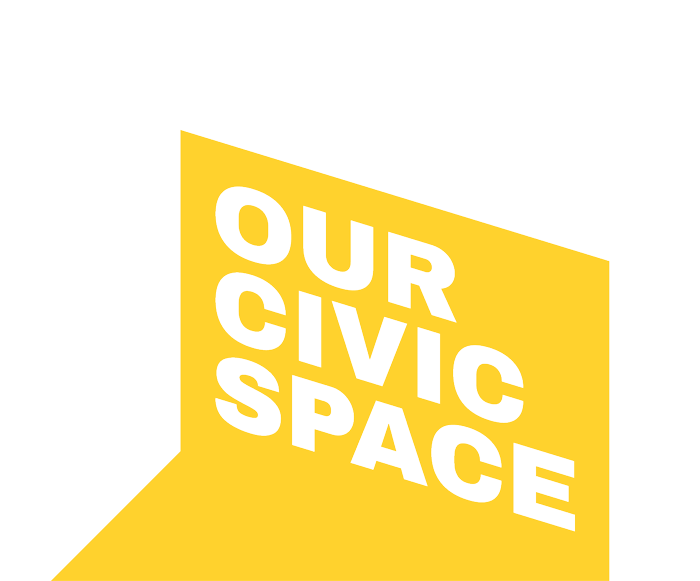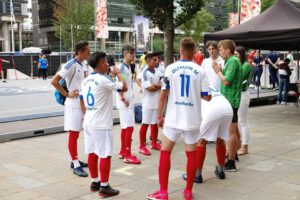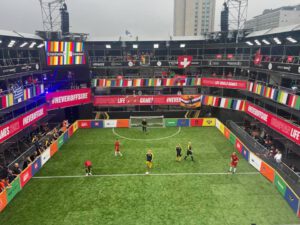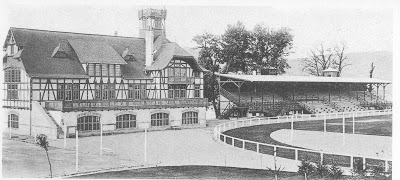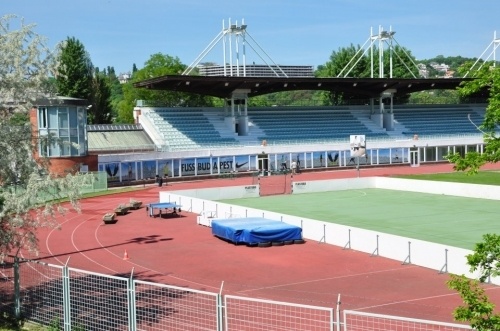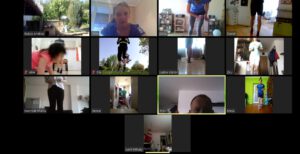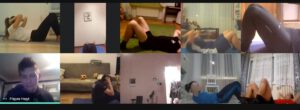European Life Goals Games
In 2021, Hungary won the European Football Championship. A strong statement… We can all remember the memorable penalty shootout at Wembley, but it was fought by two teams and Hungary definitely wasn’t one of them. Still, the above statement is true: Hungary did win a football EuroCup this year.
How come that it is not all over the press? How is it possible that hardly anyone has heard of this?
The answer is simple: the above success has been reached by another Hungarian team, in another football EuroCup. Not in the Wembley stadium in London, but a light structural stadium at the Jaarbeursplein in Utrecht. Instead of large teams of 26 players much smaller teams of 8 played, on way smaller pitches.
However, in some ways, this little tournament is similar to its big brother. It is also played with a ball, for goals. Just like in our ‘big’ national team, some players come from migrant backgrounds, here, as well. In our case, this is true for half of the squad. Three Afghani and one Iranian player have also earned undying merits in the victory. It is a result of valuable professional work: coaches and players do their best to eliminate their faults by holding video analyses daily, while they do the same analysing their next day’s opponent. Just like on the highest level.
With the European Life Goal Games – as the name of the tournament suggests – sports performance is not the primary and exclusive measure of success. Street football tournaments provide an opportunity for athletes for whom sport serves to repair unfavourable, disadvantaged situations, in addition to maintaining health, and even more so.
But how does it all happen?
On the one hand, at the individual level. The majority of these players are either raised in children’s foster homes, or come from a migrant background, are/were homeless, or grow up within other disadvantageous conditions. Many people took a plane for the first time in their lives to attend the tournament. Regular physical activity is crucial for them, as it makes it easier for them to acquire life skills in a playful way that can serve them in academic achievements, being successful in the labor market, starting a family, and much more. Regular training, punctual arrival, and the necessary communication prior to each event actually all serve these purposes. In football, just like in other team sports in general, everyone has his/her unique role on the pitch. If a team wants to be successful, all team members must be individually aware of their roles. It is true the other way around as well: a team, where teammates are aware of each other’s strengths and weaknesses, is able to offset individual mistakes, so the team can be successful even if some players are having a bad day. Players have the opportunity to experience the power of community, within a short time, with a smaller stake. It is important to emphasise: when setting the lineup, football knowledge is not the primary selection criterion here, either. Diligence, reliability, “good behaviour” are at least as important.
It is important to highlight that each form of motion has its own set of rules that players need to accept and adhere to. Since Fairplay Football and Street Football – to name only two of the most important sets of rules used by the Oltalom Sport Association – are played by completely different rules, players can gain experience in adapting to different requirements during training and matches. And that teaches just the kind of flexibility one needs in a workplace, for example.
A sense of achievement is also important. It’s an uplifting, self-confidence-boosting experience when we are encouraged by hundreds from the stands, and we don’t even have to win a tournament or a match for this. Success on the pitch reinforces positive self-image and gives confidence to those who find it difficult to gain such experiences as a migrant or a youngster in care. In addition, the features of professional sports – suddenly came glory, astronomical salaries, too rapid improvement in living conditions – that so often ruin the careers and individual development of many talented young athletes do not appear in street football.
At the community level: In addition to developing the skills needed to thrive in life, another crucial goal of a sport-integration program is to build a community that provides participants with a solid base to continue. Although Hungary was represented only by a men’s team at the Dutch tournament, the training sessions of the association are attended by girls too, who prepare together with the boys, so the integration takes place not only on a social, and (inter)cultural, but also at the gender level.
Just as sports – a football game – can be seen as a modeled symbol of life on an individual level, so the team can be interpreted as a scaled-down copy of society. The team will be successful if the players have common goals and strategies and are willing and able to reach them together. This is how it works in the family, in the classroom, in the workplace. Moreover, this is precisely how it worked in Utrecht for a total of about 500 players from 22 participating teams. Teams had breakfast and dinner together every day; there, and at the accompanying programs of the tournament, players got the opportunity to get to know each other in life situations completely different from the matches. Those who were still opponents on the pitch were already cheering each other from the stands the next day.
Operating, as a team: this is the field, in which Team Hungary made the biggest progress during the tournament. Players felt more and more confident from match to match on when to pass the ball further (subordination of individual aspects) and when to take the shot (take individual responsibility) for the sake of the team, even if it seemed risky. Individual mistakes were followed by encouragement from peers who experienced success and then winning the tournament as a shared experience.
At the organisational level: In addition to the individuals and the community involved in integration programs, there is a third player, less visible, mostly hidden in the background, albeit equally important, that should also be mentioned. The implementing organisation itself, together with its personal and material conditions. The members of the team that won the European Championship in Utrecht were athletes of Oltalom Sport Association. The organisation considers sport to be its primary channel of integration. In addition to the training sessions, OSA organises regular cultural programmes, thematic trainings, and scholarship programmes for its players.
Many of the players of the team with the youngest (17) average age of the tournament have been attending the association’s training sessions since their infancy, attending its camps, language classes, and other events. The organic development of the organisation is shown by the fact that the current head coach of the team was a player in similar tournaments a few years ago. In addition to the coach, a social worker is always present at the trainings; they can replace each other if necessary.
Such an international tournament is not only informative in terms of the team’s sport performance, but also shows whether the organisation is on the right track to fulfill its mission. From this point of view, the team’s ever-improving performance during the tournament, the ability of players to fight for each other, and finally winning the tournament are all encouraging signs. Especially considering that OSA does not have its own facility; it organises trainings in the cages of community parks and on rented pitches. The fact that there is no standard-sized street football pitch in Hungary was also a challenge in preparing for the street football tournament in the Netherlands. In the training sessions, they used tape to get the right size. While it is true that working in difficult conditions makes us stronger and more creative, a permanent location, a headquarters where other events can be held in addition to training, would be a major step forward for OSA.
Then, one day, maybe Hungary could win the European Football Championship at home. In the meantime, hats off to the Oltalom team that represented Hungary and won the tournament. Nice job!
Written by OSA
